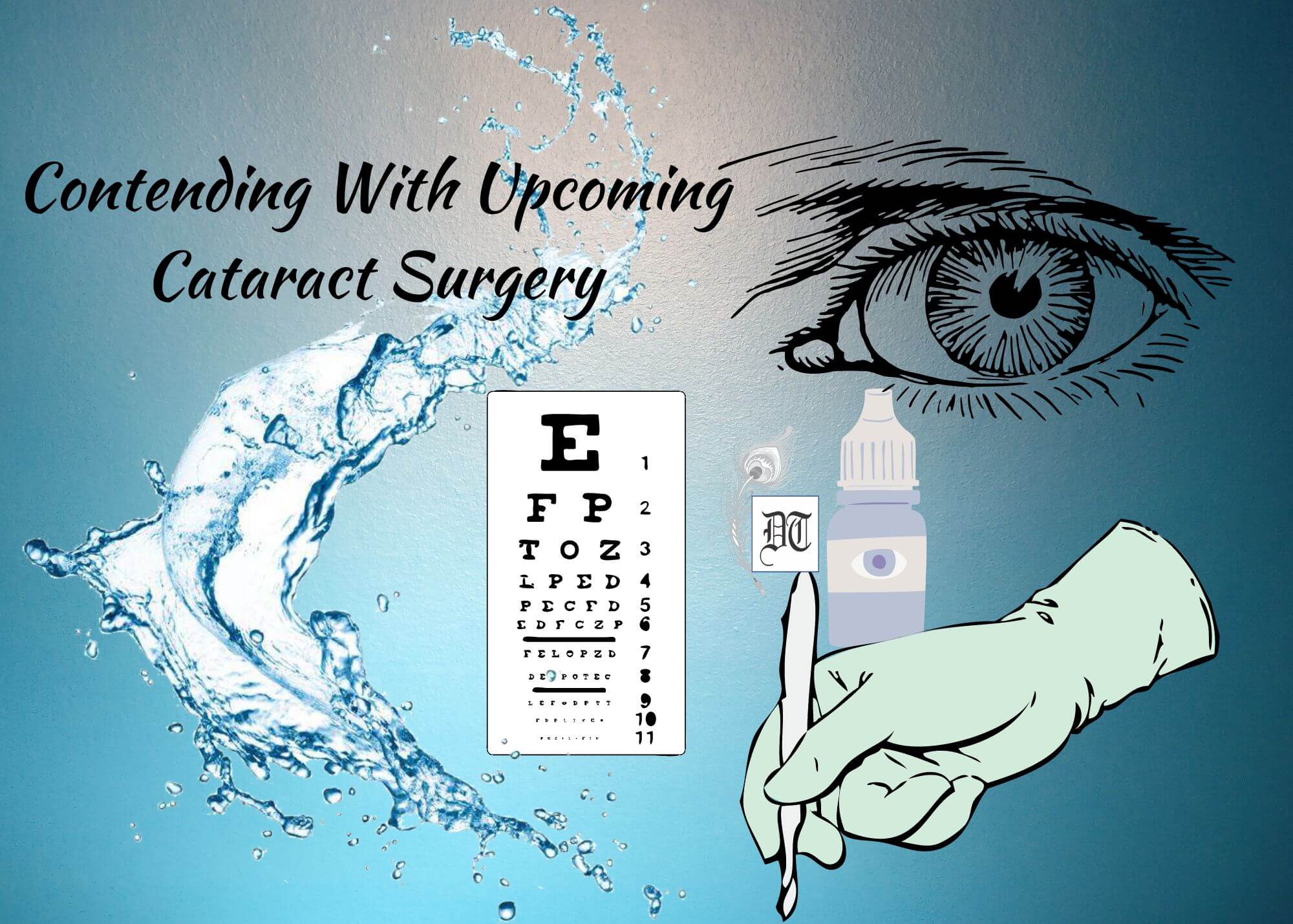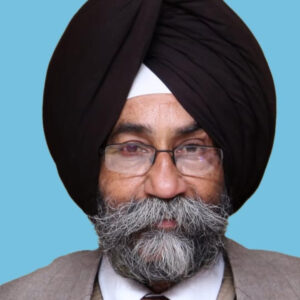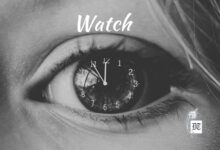A simple eye problem turned into a journey of self-discovery, exploring the complexities of language, medical science, and the poetic significance of eyes, states Dr Swaraj, exclusively for Different Truths.
“We begin in infancy by establishing correspondence of eyes with eyes.” – Robert Frost
Slightly blurred vision and blinding headlamps of vehicles make night driving a nightmare. These, I thought, were the symptoms of age catching up with my eyes too. Hence, I ignored them like my greying hair. I think one has to accept gracefully even unwanted gifts old age brings. But if you start seeing sparklers in your eyes even when they are closed, it’s time to see an ophthalmologist. Or a psychiatrist, for these can be hallucinations too. Having spent more than four decades with me, my wife wanted me to see a psychiatrist. But somehow, I preferred an ophthalmologist.
I phoned a young eye surgeon, a friend’s son, and asked him, “I think I’ve sparklers in my left eye. My wife believes I’m hallucinating.” “Uncle, these are neither sparklers nor hallucinations. These are floaters. I’m at my clinic, come just now. Let me examine,” he replied. With my fears about fireworks in my eyes and hallucinations allayed, I felt relieved. “The problem.” he said, “is either with the retina or age-related dryness of the eyes.” I had to visit him for a checkup.
Within half an hour, I was at his clinic. After a cursory examination, he said, “Uncle, I need to dilate your eye to examine the condition of the retina. The floaters, as I said earlier, could be the result of some retinal issue. So far as blurry eyes and difficulty driving at night are concerned, well, you’ve developed cataracts. It’s more pronounced in the left eye. But let me check your retina first after dilating it.”
I was excited and intrigued at the same time. The word ‘cataract’ rang something different in my mind. To me, it meant a waterfall, a waterspout, a torrent or rapids in a river. This is what I had learnt from reading Romantic literature. It reminded me immediately of
Wordsworth’s “Lines Written a Few Miles Above Tintern Abbey.” While describing the sublime beauty of the place, Wordsworth refers to the cataract. “The sounding cataract,” he writes, “Haunted me like a passion.” The beautiful image is itself a haunting image. Waterfall in the eyes was an impossibility. I could relate cataracts to eyes only by imagining eyes welling up with tears.
What’s Cataract?
The doctor gave instructions to the nurse to put some drops in my eyes. I thought of telling him what cataract means to me. But before I could begin, he said, “Uncle, with the advancing age, the lens of our eye becomes clouded. That is what cataract is. We remove the defective lens and replace it with a new one. The vision becomes perfectly fine. It is a stichless, painless procedure.” “Even the fungus-infested camera lenses too become soft and unsharp. A camera mechanic can remove the fungus. Can’t you remove the cloudiness from the eye lens in the same way?” I asked. “Well, cataract is a type of lenticular opacity. It isn’t possible to remove fungus from the lens of the eye. The lens itself has to be replaced.” “Lenticular opacity? Does it mean that the lens has become opaque? Will I have a new lens in the eye?” “Yes, you do need an intra-ocular lens implant. You’ll be able to see much better, and night driving won’t be a hassle anymore.”
My mind had already taken wings. Lenticular opacity! What an unambiguous phrase, unlike the word cataract! Can’t we bring to our day-to-day language the rigour that characterises communication in the sciences? Devoid of this rigour, our language is full of ambiguity. That’s why it often lands us in a bind. We have to keep explaining to others that we never meant what we said in the first place. How I wish our language could have the transparency of language of sciences! No ambiguity would then plague our language, resulting in frequent misunderstandings. All ambiguous phraseology should be left to the poets to revel in. The only downside of transparent language will be that most politicians will go out of business. Many bureaucrats and lawyers too will feel the pinch.
I was still wrestling with such ideas when the nurse arrived with the medicine. She put some drops in my eye and instructed me not to open it. The process was repeated after fifteen minutes. There were others too in the waiting room. Some of them were sitting with both their eyes closed. But I wasn’t thinking of them. The idea of having a new eye lens had my mind in its grip. A new lens would be like getting a new eye. Would it be a wide-angle lens, a normal lens, or a long zoom lens? It could even be kaleidoscopic. How wonderful it would be to see the world bathed in rainbow glory without ingesting a psychedelic! I didn’t want a fisheye lens as it tends to distort the perspective. Moreover, with its vast hemispherical sweep, it would never miss my bushy eyebrows and walrus moustaches. A wide-angle zoom would be ideal. But I couldn’t figure out how such a contrivance would fit into my eye. This device could well be a miracle of the coupling of nanotechnology and humans. I was imagining optically savoury possibilities of expanded visual perception with a new lens.
Bright and Fuzzy
Twenty minutes later, I was once again in front of the doctor. He made me sit in front of a machine. Everything appeared intolerably bright and fuzzy with the dilated eye. It was exciting to think of this expanded visual perception in terms of a mystical experience. I didn’t know how to define this experience. Was it sacred or profane? Only mystics, theologians, or ophthalmologists could throw light on it. Seeking confirmation of what I was imagining, I asked, “With so much light entering my left eye, isn’t this experience close to how mystics define their experience of the divine? Do your text books mention it?” He smiled and replied, “Uncle, let me examine your eye.” He asked me to get closer to the machine and rest my chin on the chin rest. “Don’t move now. Just look through the hole; don’t blink and don’t talk.” On looking through the hole, I saw crisscrossing red lines. I remembered elementary school 4 lessons in geometry. The only difference was that school teachers then were very strict. Sparing the rod was a rarity in those days. Here I had a smiling doctor in front of me.
“Uncle, your retina is perfect. The floaters are due to dryness of the eye. Use the eye drops I am prescribing four or five times a day. But you must get a lens implant. You shouldn’t delay it anymore.” My mind had gone into overdrive by then. “Will it be a Sony, Canon, or Nikon lens? I own a Nikon camera, and their lenses are great. What will be the focal length of the implant?” He smiled, his face a perfect likeness of laughing Buddha: “These camera manufacturers don’t make lenses for the eye. As it is, we’re not putting a camera lens into your eye. We will use a Zeiss lens for your eyes. It’s a German brand.” “Oh! That is fantastic. I know about German Carl Zeiss lenses.” With all my knowledge about camera lenses, I was determined to impress him. “Do you know that Zeiss lenses are a photographer’s delight? They are super sharp and free from all kinds of distortions. But they are prohibitively expensive. I also dream of having a Carl Zeiss lens someday, a Rolls Royce among camera lenses. I’m happy that if not for my camera, I’ll at least have a Zeiss lens in my eye! Will it cost me a kidney?” He laughed, “Uncle, you should have been a professional photographer. The lens to go into your eye isn’t very expensive. If you agree, I’ll take the number of your eye and order the lens just now. I’ll get it in a week.” “Go ahead,” I said.
Ignoring one’s eyes, we know, can be disastrous. Blindness might prompt Milton to write a poem about his blindness. But I was no Milton. After all, our eyes are our windows to the world outside. Conversely, they are windows to our soul also. The moment I realised it, I was horrified. This doctor must have been peeping into the souls of his patients. Had he looked into mine too? It was difficult to get rid of this disturbing thought. I remembered reading somewhere that the lie detector test relies too heavily on pupillary response. No wonder villains in most films always wear dark glasses to hide their real intentions. But an ophthalmologist has access to a person’s deepest thoughts.
Beloved’s Eyes
Eyes are definitely the most important organ. Edgar Allan Poe focuses a lot on the eyes of characters in his stories. Countless Hindi film songs are paeans to the beauty of one’s beloved’s eyes. Urdu poet Anjum Jaipuri, in a couplet, compares the beloved’s eyes to cups of wine: “Na meri nazar se nazar mila, ke yeh ittefaq ajeeb hai / Mujhe shauq jaam-e-sharab ka, teri ankh jaam-e-sharab hai.” (Don’t look at me like that, for it’s a strange coincidence / I love drinking wine, your eyes are cups of wine.”) The image of the beloved’s intoxicating, murderous eyes is a recurring one in poetry. Geoffery Chaucer in his poem Rondel of Merciless Beauty, writes:
Your two great eyes will slay me suddenly;
Their beauty shakes me who was once serene;
Straight through my heart the wound is quick and keen.
With my mind waxing poetic, I asked the doctor while going out, “Have you read any poems about eyes?” “I cure eyes and make people see better. No, I don’t read poems about eyes. I’ve no time for all that.” His tone was unexcitingly matter-of-fact. No way could such a prosaic fellow have looked into my soul. He had trained his gaze to go up to the retina only. Dismissing me with a wave of hand, he asked the attendant to usher in the next patient.
On reaching home, I broached the topic of eyes with my wife. Eyes are of different types. Youthful eyes sparkle with love of life. The leering eyes pop out with lascivious intent before the mouth starts drooling. Eyes can be dreamy, fiery, drowsy, droopy, puffy, penetrating, smiling, sad, scornful, sympathetic, benevolent, curious, and so on. One can be doe-eyed, starry-eyed, hawk-eyed, eagle-eyed, green-eyed, have a roving eye, and be all eyes. Wondrously enough, one can also cast sheep’s eyes at someone!
The operation was scheduled for next week. During this period, I ransacked Google for articles on cataract surgery and poems on eyes. Pablo Neruda’s “Leaning into the Afternoons” fascinated me. He writes: “Leaning into the afternoons, I cast my sad nets toward your oceanic eyes.” I searched YouTube for songs with eyes as leitmotif. I memorized even a popular, immensely hummable “Teri ankhon ke siva duniya mein rakkha kya hai (What is this world worth/but for the sight of your eyes?)” The idea was to sing and dedicate it to my wife’s beautiful eyes. Not wanting to be subjected to the violence of discordant notes, she declined my request. Invoking Salma Agha’s song from the film “Nikaah”, I said, “Dil ke armaan ansuon mein beh gaye (My desires have been swept away in tears).” There was a twinkle in her eyes: “You’ve become hypochondriac about your eye. Better see a psychiatrist.” I said, “There are no sparklers, no hallucinations; it’s just lenticular opacity. But my heart always misses a beat when I see the sparkle in your eyes. Shouldn’t I go to a cardiologist instead?” “Haven’t I been your cardiologist looking after your heart for the last forty-three years?” I didn’t have the heart to say how eyes can surveil a heart for so long.
That is how the week before the surgery was all about eyes.
Picture design, Anumita Roy






 By
By

 By
By
Moving, informative and stirring, written with a deft hand.
Thank you so much, sir.
Sir I really enjoyed this piece of writing. It’s remarkable how you addressed such a serious subject while adding a touch of humor. In the last paragraph, you simply nailed it. The moment I started reading, I had Faiz’s lines moving in my mind “Teri aankhon ke sivan duniya mein rakha kya hai” and I thought about mentioning it to you, but not to my surprise you included it at the end. It brought an extra smile to my face.
Thank you so much, Jaspreet beta.
A delight to reading eyes, Sir. Your words always leave me with a smile while prompting deeper reflection. As usual, it left me admiring your style of using the power of humor in addressing serious issues.
Thanks a lot, Ank beta.
Amusing write up laced with Typical Swarajian humour and literary allusions!
Thanks a lot, Dr. Anand.
A somewhat serious eye problem in my 0pinion has been penned down by the litterateur as an interesting episode of his life depicting the entire experience from ithe origin of the problem to its fixation. This interesting write up also aquaints the lay man with adequate knowledge of medical terminology of this type of eye problem. Very interesting and knowledgeable.
Thanks a lot, Dr. Virk sir.
Wonderful article, describing your emotions, knowledge, passion for photography and with spices of humour. Enjoyed reading it Sir. Hope you are fine by now with your new Carl Zeiss lenses. Keep enjoying life and stay fit and healthy always.
It is a masterpiece. Engaging, entertaining, informative peppered with humour which tickles the funny bone effortlessly. Vision and wisdom of Wordsworth, Chaucer and amorous touch of Bollywood romantic famous songs add to its unique beauty. Your passion for shooting with camera and vast knowledge about range of lenses adorn it with rich information. The metaphoric reference to Ma’am as cardiogist makes the reader identify with their own personal cardiologist. It like always has been a treat to read. Thanks for sharing Sir.
Feeling sorry for the doctor . He missed the sea of words, emotions and musical symphony fulminating behind the retina
. He missed the sea of words, emotions and musical symphony fulminating behind the retina  . Hope you liked your new possession: the Carl Zeiss brand new lens! Thanks for sharing Prof. Swaraj.
. Hope you liked your new possession: the Carl Zeiss brand new lens! Thanks for sharing Prof. Swaraj.